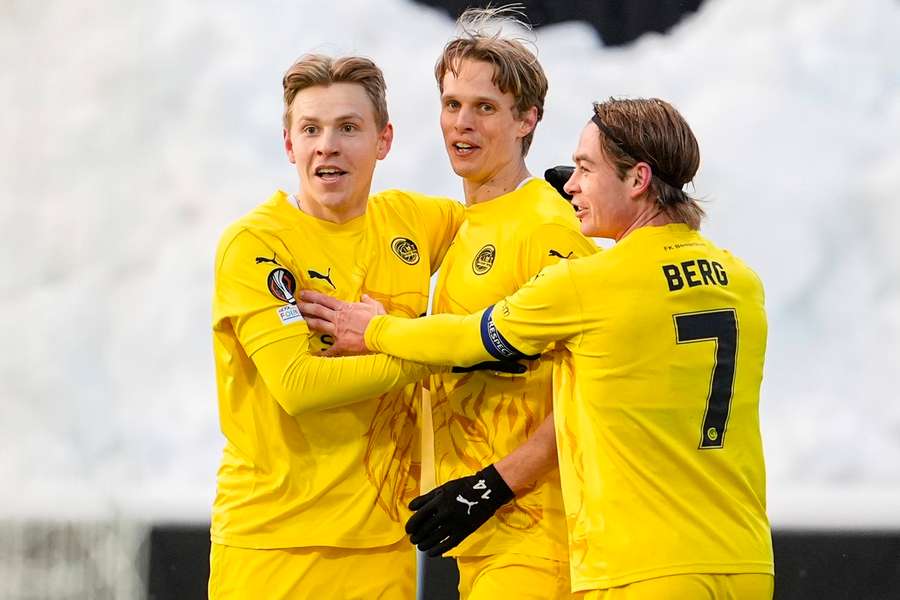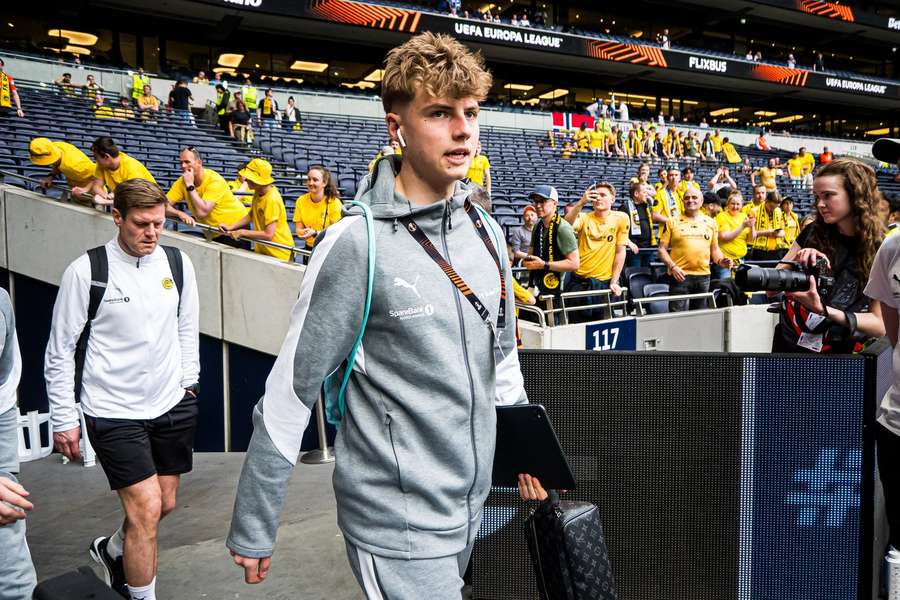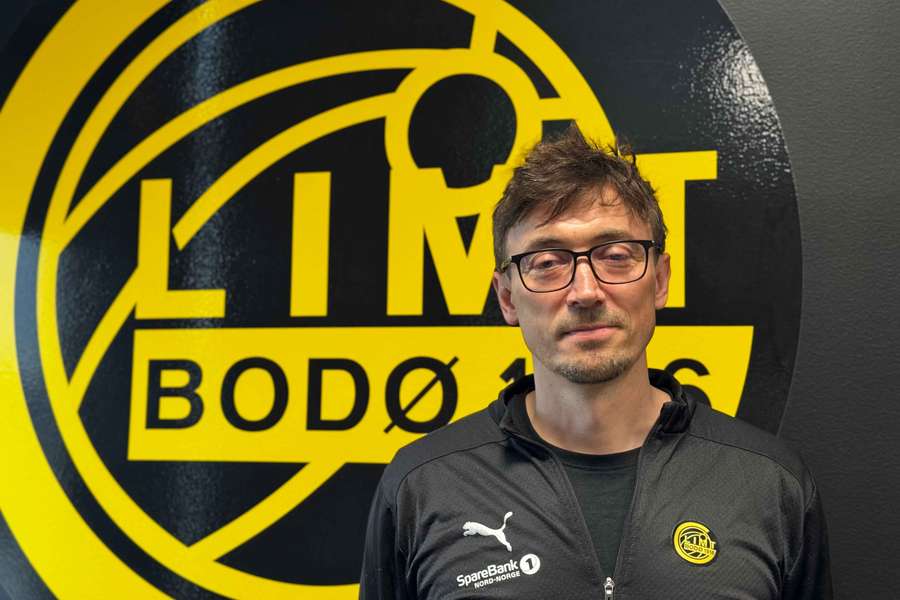One of the key people in Bodo/Glimt's rise to the summit of Norwegian football is Havard Sakariassen, the club’s Director of Football, whose job blends data-driven scouting with an instinct for spotting players who fit the Glimt way on and off the pitch.
In a special roundtable discussion exclusive to Flashscore, Sky Italia, Marca, and So Foot, Sakariassen spoke about the unique culture the club has managed to build, the reasons behind standout players returning home from stints in more famous leagues, and pinpointed the player who can be Bodo/Glimt's next big star.
How does Bodo/Glimt work with data when scouting players? And how does it tie together with the unique culture you have here, building a successful club above the Arctic Circle on togetherness rather than individualism?
“With data, like with other things, we also went a slightly different way than many of the other teams. There are a lot of programmes and platforms you can buy, but instead, we worked with three students who were really interested in football data and wanted to work with us.
"They now run the company called Fokus, which we are invested in, and we helped them build the company from the ground up. It’s used not just by us but also by many Scandinavian teams. It’s user-friendly not just for computer science people, but also for football people, everyone understands it.
"But that’s just one part of the scouting process. As you said, the culture at the club is really important to us as well and a huge part of our achievements. And you don’t see that in numbers. We need to do really good research on every player we bring in. If we miss, it has to be sorted out quickly - either they have to change, or they have to go.”
Adapting to the Arctic
Most of the players in the current squad are Norwegian, but there is a big group of Danish players in the team as well. Do you think it’s partially because it’s easier for them adapt to the local environment and mentality, other than the fact the sporting project seems right to them?
“It’s a good culture fit. We come from the same values, and we are both social democratic societies. Here at Bodo, we believe that if I put everything into the group, I get everything back. The players have to help elevate the team, and then they will shine personally as well. It’s easy to get Norwegian and Danish players to think that way because of a similar mentality.
"But even if the current squad is predominantly Norwegian and Danish, we’ve also had great success with players from all over the world. We brought in Victor Boniface from Nigeria, and he adapted really well, too.”

We have been talking about Bodo/Glimt’s specific culture and mentality, can you define what it is to you?
“We want players who want to achieve something for themselves, but who don’t put that ahead of the team objectives and values. If you and I are competing for the striker position, I want to succeed myself, but I have to be happy if you overtake me and do well.
"It’s a collective culture, team-first. In the end, football is not an individual sport. We have to work like a Formula 1 team. They probably have a thousand people, but they all work for one thing - to get that car just a split second faster with each lap. If you just work for yourself, you don’t belong here.”
Competing at the top level
You have several players who have played in the top five leagues, but ultimately returned to lead you to the Europa League semi-final. Team captain Patrick Berg returned after a year at Lens, Jens Petter Hauge was at AC Milan and won the Europa League with Frankfurt, but still decided to come back.
“We have a group of seven team leaders who we meet with every week to discuss everything around the club, and Patrick has been a part of that since 2019, he is our team captain. It is important to have him here, as a player and as a personality and leader, it was a no-brainer to bring him back.
"Also given the history of his family with the city and club - his father, uncles and grandfather all played for Bodo/Glimt. We were very happy he wanted to come back and saw us as a good project to develop his career. He can still play against the best teams in the world and be in his home town.
"Jens can be decisive for us in big matches, we believe he has a bit of an X-factor to his game. It’s not just the two of them, there are a lot of players who have come back over the years. There are bigger clubs in the world, more money to earn, but maybe they had the best time in their careers playing for Bodo/Glimt.”
Do you think the setting of the city and the club plays a role in that? This is not a big city where you’re hunted by paparazzi, but a town of 55,000 people way up north in the Arctic Circle.
“Definitely. You have a good, calm life, (you) have your peace here and can focus on your football. Sometimes you have to go out to see the grass isn’t greener on the other side. Patrick, Jens, Hakon Evjen, Fredrik Bjorkan, these guys have been here their whole lives, have all their families here.
"It’s nice to go abroad, but I feel that maybe it’s best to live where you belong. The journalists and pundits in Norway keep saying the players need to go to foreign leagues, but I think it’s brave that they’re coming back and choose to live the life that they want, not what someone else expects of them.”
Read more: 'We don’t care about results' - Bodo/Glimt’s Hakon Evjen on the club’s rapid rise
Tricky transfer windows
How do you plan the transfer windows? With your season starting in spring and finishing in winter, the main transfer window when most clubs are on a break falls at the peak of your season.
“It’s complicated for us. We don’t want to lose anyone in January, because we are hopefully playing in Europe, but we also don’t want to lose anyone now as we’re fighting for the league title. But we have a long-term plan for every player.
"If we sell a player, we need to know how we replace them. So right now, I have in my head what we will do in January. With the summer window, it often happens that some big clubs miss their originally planned target and suddenly come to us for a player now, midway through August, and we have to fight them off. We can’t sell now, we’re closed.
"But the same process goes for acquiring players. The perfect transfer window for us is when we’re already done when it opens. For us, it opened a month ago (start of July) and we were finished in one or two weeks. We aren’t going to sell or buy anyone now, even if there is still a month left in the window.”
Norway as a whole has been climbing the rankings internationally, with players like Martin Odegaard and Erling Haaland becoming global stars in the Premier League. Do you see any young talents who can follow in their footsteps?
“I see a lot of players around here that are 16, 17 years old that have the potential, but it takes a lot to become very good. If you saw Haaland when he was 15 or 16, it’s hard to imagine he would become what he is today.
"He was good, but not the Haaland we know today. It takes a lot of good decisions from the player, the club, but also the parents and agents who can be the obstacle many times.”

You have a hugely talented young player in your squad right now, Danish striker Mikkel Bro Hansen, who is a member of the first team at just 16. How do you work with his development and how do you plan the pathway of such a player?
“The approach with young players has changed over time. Before, we were very connected to our academy, but suddenly the first team shot up the football ladder to a place an academy of such a small city can’t catch up with. It’s not easy being a 16 or 17-year-old player living in Bodo. You have to be a special talent, like Mikkel Bro.
"At 16, he can practice with the first team every day without a problem. It is really hard to plan his future. The hardest part is patience. The players, but also the parents and agents, have to be patient and let them grow and develop in a natural way. I think it’s a big problem in Norway and probably the world too.
"Another challenge for us, unlike other teams around us like Tromso, is that we want to play in the Champions League, and it’s really hard to integrate a 16-year-old player into the squad at that level already. But if you are truly good like Mikkel Bro, you actually have a chance to compete.”

